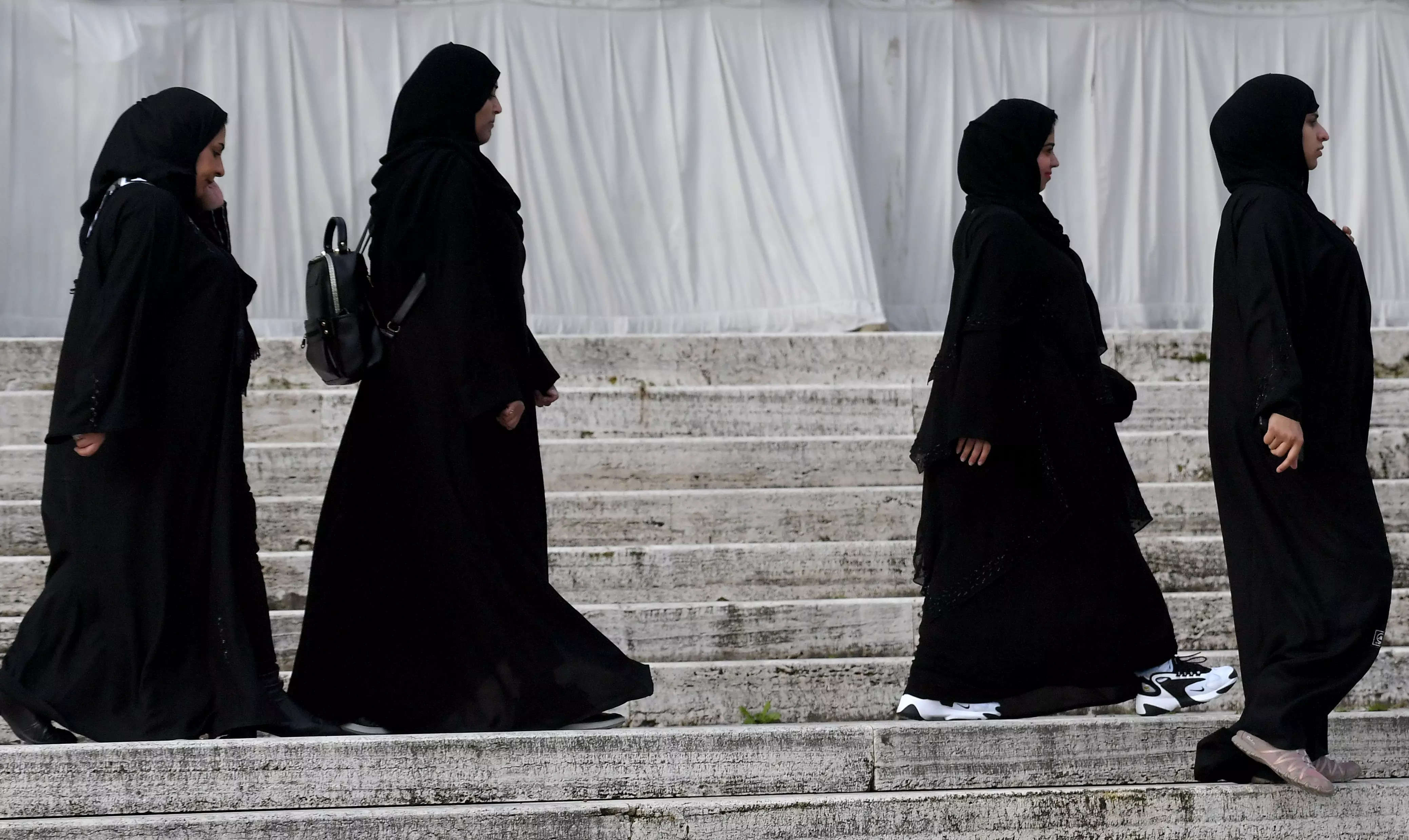The French education minister, Gabriel Attal, declared on Sunday that abaya – the loose-fitting, full-length robes worn by some Muslim women – will be banned in schools, citing that the attire contravenes France’s stringent secular laws in education.
Gabriel Attal told TF1 television, “Wearing abayas in schools will no longer be permitted.” He affirmed that he would establish “clear regulations at the national level” for school administrators in preparation for the nationwide return to classes commencing on September 4.
“When you walk into a classroom, you shouldn’t be able to identify the pupils’ religion just by looking at them,” the minister said.
France, which has enforced a strict ban on religious signs in state schools since 19th century laws removed any traditional Catholic influence from public education, has struggled to update guidelines to deal with a growing Muslim minority.
This action follows extensive deliberation spanning months over the use of abayas within French educational institutions, where the wearing of Islamic headscarves by women has long been forbidden. The ban was advocated by right-wing and far-right factions, while the left voiced concerns about potential infringement on civil liberties.
In recent times, instances of abaya usage in French schools have escalated, leading to tensions among teachers and parents on this issue. Attal asserted, “Secularism entails the ability to achieve personal development through education,” characterizing the abaya as “a religious gesture designed to test the republic’s adherence to the sanctity of secularism that schools must embody.”
In 2004, the country prohibited the use of headscarves in schools, and in 2010, it enacted a ban on full-face veils in public spaces, actions that elicited discontent from segments of its Muslim populace, which numbers around five million.
The law enacted in March 2004 forbade “the display of symbols or attire that overtly manifest religious affiliation” within schools. This included prominent crosses, Jewish kippas, and Islamic headscarves.
In response to inquiries from associations of school principals regarding this matter, Attal’s predecessor as education minister, Pap Ndiaye, expressed his reluctance “to produce endless catalogs specifying dress lengths.”
Bruno Bobkiewicz, a leader of one of the head teachers’ unions, welcomed Attal’s announcement, stating, “The instructions were unclear, but now they are well-defined, and we appreciate that.” Eric Ciotto, head of the opposition Republican party, also expressed approval, remarking, “We have advocated for the prohibition of abayas in our schools on multiple occasions.”
Clementine Autain from the left-wing France Unbowed party, however, criticized the “policing of attire.” Autain contended that Attal’s proclamation was “unconstitutional” and ran counter to the foundational principles of France’s secular ideals, asserting that it reflected the government’s “obsessive rejection of Muslims.”
This announcement marks the foremost significant decision by 34-year-old Attal, who assumed responsibility for the contentious education portfolio this summer. Together with 40-year-old Interior Minister Gerald Darmanin, Attal is regarded as an up-and-coming figure who could potentially assume a significant role after President Emmanuel Macron’s anticipated departure in 2027.
(With inputs from agencies)
Gabriel Attal told TF1 television, “Wearing abayas in schools will no longer be permitted.” He affirmed that he would establish “clear regulations at the national level” for school administrators in preparation for the nationwide return to classes commencing on September 4.
“When you walk into a classroom, you shouldn’t be able to identify the pupils’ religion just by looking at them,” the minister said.
France, which has enforced a strict ban on religious signs in state schools since 19th century laws removed any traditional Catholic influence from public education, has struggled to update guidelines to deal with a growing Muslim minority.
This action follows extensive deliberation spanning months over the use of abayas within French educational institutions, where the wearing of Islamic headscarves by women has long been forbidden. The ban was advocated by right-wing and far-right factions, while the left voiced concerns about potential infringement on civil liberties.
In recent times, instances of abaya usage in French schools have escalated, leading to tensions among teachers and parents on this issue. Attal asserted, “Secularism entails the ability to achieve personal development through education,” characterizing the abaya as “a religious gesture designed to test the republic’s adherence to the sanctity of secularism that schools must embody.”
In 2004, the country prohibited the use of headscarves in schools, and in 2010, it enacted a ban on full-face veils in public spaces, actions that elicited discontent from segments of its Muslim populace, which numbers around five million.
The law enacted in March 2004 forbade “the display of symbols or attire that overtly manifest religious affiliation” within schools. This included prominent crosses, Jewish kippas, and Islamic headscarves.
In response to inquiries from associations of school principals regarding this matter, Attal’s predecessor as education minister, Pap Ndiaye, expressed his reluctance “to produce endless catalogs specifying dress lengths.”
Bruno Bobkiewicz, a leader of one of the head teachers’ unions, welcomed Attal’s announcement, stating, “The instructions were unclear, but now they are well-defined, and we appreciate that.” Eric Ciotto, head of the opposition Republican party, also expressed approval, remarking, “We have advocated for the prohibition of abayas in our schools on multiple occasions.”
Clementine Autain from the left-wing France Unbowed party, however, criticized the “policing of attire.” Autain contended that Attal’s proclamation was “unconstitutional” and ran counter to the foundational principles of France’s secular ideals, asserting that it reflected the government’s “obsessive rejection of Muslims.”
This announcement marks the foremost significant decision by 34-year-old Attal, who assumed responsibility for the contentious education portfolio this summer. Together with 40-year-old Interior Minister Gerald Darmanin, Attal is regarded as an up-and-coming figure who could potentially assume a significant role after President Emmanuel Macron’s anticipated departure in 2027.
(With inputs from agencies)
#France #ban #wearing #Islamic #abayas #schools

